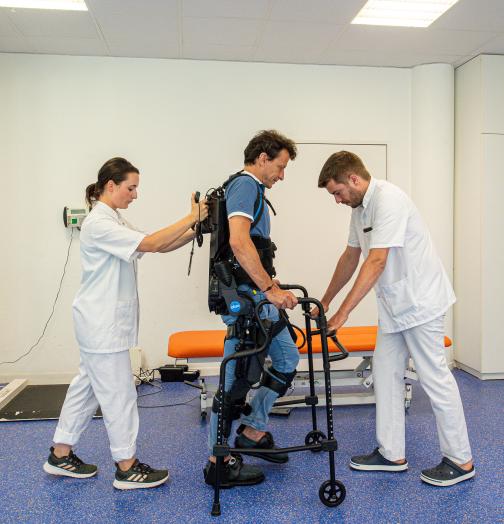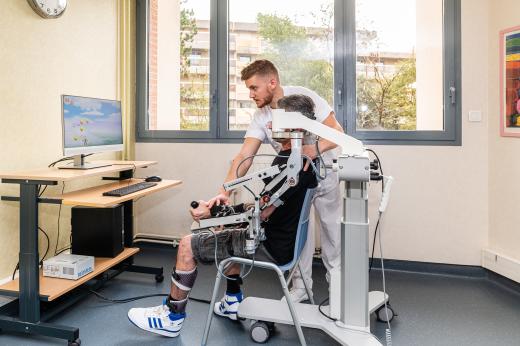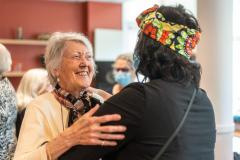Health innovation

Clariane innovates in three priority areas in the health sector, in line with changes in society and the expectations of patients and healthcare staff.
Geriatrics: support for the elderly, Alzheimer’s specialisation, and palliative care
Rehabilitation: locomotor, neurological, pulmonary, nutritional, cardiological, oncological and paediatric diseases
Psychiatry and addiction care: mood disorders (depression, bipolar disorder), anxiety and adjustment disorders, burnout, eating disorders, personality disorders, and substance and non-substance addictions.

In line with projects relating to the 5 Ps of medicine – preventive, personalised, predictive, participatory, and purpose-driven – Clariane mobilises medical communities in the various countries where the Group operates to innovate at three levels:
- Diagnosis and therapy (non-drug treatments including brain stimulation, new technologies-AI, and digital therapies)
- Organisation of pathways (care, healthcare, life): telemedicine (teleconsultation, medical tele-expertise, medical tele-monitoring, medical tele-assistance, medical tele-regulation), e-pathways, mobile teams, and new activities (sleep, pain, etc.)
- Research and training (clinical studies and data collection)
We are committed to deploying innovative health projects whose objectives involve the medical communities in the six countries where Clariane operates.


Alzheimer’s disease, let’s talk about it!
Across Europe, Clariane has made it a priority to support people with Alzheimer’s disease, their families and their medical and care teams.
